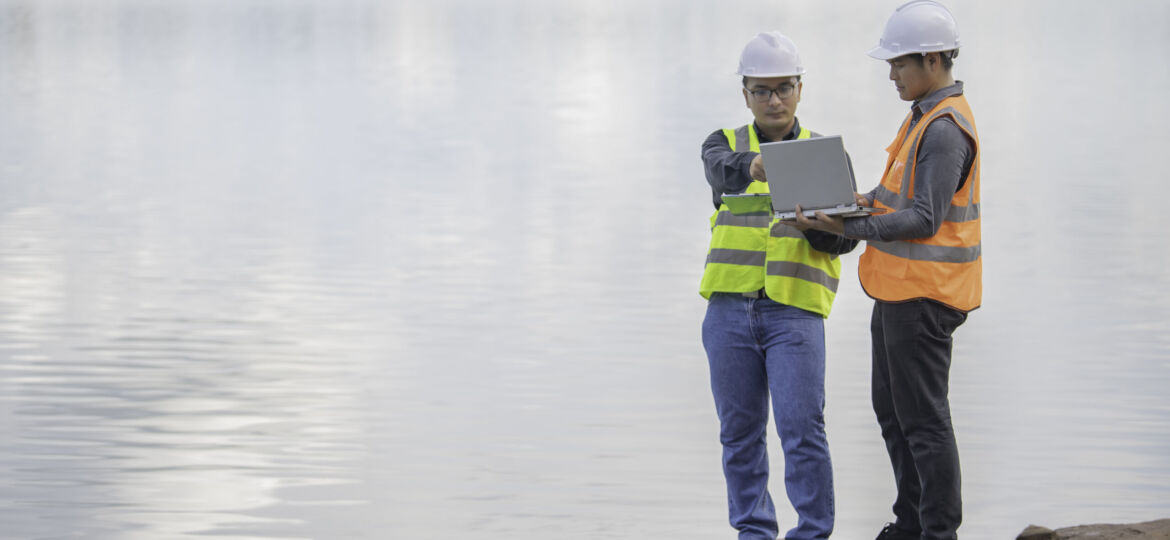
Exploring the Role of a Water Resources Engineering Assistant in Ontario
If you’re someone who enjoys solving real-world environmental challenges and has a knack for math, science, and technology, the role of a Water Resources Engineering Assistant might just be your dream job. But what does this position involve, and how can you prepare for it? Here’s everything you need to know about this exciting career.
FIND THE JOB YOU WANT! Finding your next job doesn’t have to be a solo act. Apply to a job on the Job Skills job board and one of our employment team members will help you through the process. https://www.jobskills.org/job-board/
A Typical Day or Week
No two days are exactly the same in this role, but you’ll find yourself involved in plenty of meaningful work. You might spend time analyzing floodplain elevations for permit applications, supporting municipal partners, or working with engineers to modify models that assess the impacts of development on local water systems. During flood events, you may act as a Flood Duty Officer, assisting with forecasting and warnings to protect communities. You’ll also collaborate with Geographic Information System (GIS) staff to update floodplain mapping and manage databases.
Overall, your week might include desk work, fieldwork, meetings, and even some high-stakes problem-solving—all contributing to the safety and sustainability of local environments.
Main Tasks and Projects
Water Resources Engineering Assistants focus on tasks like running hydrologic and hydraulic models, analyzing environmental data, and drafting technical reports. They also tackle practical projects, such as helping revise floodplain mapping systems, reviewing policy submissions, or calibrating flood models with weather and site data.
Another key task is contributing to the Flood Forecasting and Warning Program, which involves identifying flood risks using data from gauges and historical reports. Your work directly impacts how municipalities prepare for and prevent flood-related disasters.
What’s Rewarding About This Work?
The most fulfilling part of this job is knowing that your work makes a tangible difference in people’s lives and the environment. Helping communities manage stormwater, mitigate flooding, and adapt to climate challenges offers a deep sense of purpose. Each project allows you to leave a lasting impact on watershed systems, protecting ecosystems and public safety.
Opportunities for Growth
Water resource engineering is a field ripe with growth potential. Assistants can move into specialized areas like floodplain mapping, stormwater management, or low-impact development. Some may aim to become full-fledged engineers or project managers, taking on leadership responsibilities.
There’s also room for innovation—whether it’s developing better flood forecasting tools or creating sustainable designs to address challenges like urban flooding.
Steps to Reach the Position
Most Water Resources Engineering Assistants have a Bachelor’s degree in fields like Civil Engineering, Water Resources, or Environmental Engineering. A year of related work experience is often required, with internships or entry-level roles providing a great start. Technical skills in hydrologic/hydraulic models, data analysis, and Microsoft Office are essential, as well as familiarity with software like ArcGIS.
For this particular profession, make sure you also build a strong understanding of the engineering and environmental policies within Ontario.
Key Skills for Success
- Hard Skills: Proficiency in modeling software, GIS systems, and environmental data analysis tools is non-negotiable.
- Soft Skills: Communication, teamwork, and time management are equally important, as this role requires interacting with engineers, municipal staff, and other stakeholders. Attention to detail is critical for ensuring accuracy in mapping and data interpretation.
- Analytical Skills: You’ll spend a lot of time solving complex problems with creative yet practical solutions.
How to Stand Out as a Candidate
To shine as a candidate, focus on showcasing your technical expertise, particularly with hydrology and flood management tools. Practical knowledge of flood forecasting systems and strong organizational skills will also set you apart. If you’ve worked on collaborative, interdisciplinary projects in the past, don’t forget to highlight that.
Empowering Your Job Search with Tools and Solutions for Success: Job Skills’ customized employment solutions are available to every job seeker, including youth, newcomers, persons with disabilities, women, and anybody else who may be searching for a job. https://www.jobskills.org/job-seekers/
Challenges in Water Resources Engineering
The job can be demanding, especially during flood events when quick, accurate decisions are critical. Interpreting complex data systems and balancing multiple projects under tight deadlines is often part of the job. However, this is where problem-solvers and critical thinkers thrive.
Misconceptions About the Profession
Some people might think this job is purely technical, involving lots of time behind a computer. While technical expertise is a large part, the role also includes fieldwork, collaboration with stakeholders, and contributing to community-based environmental initiatives. It’s as much about applying science as it is about making a tangible difference in people’s lives.
Breaking Into the Field
One of the best ways to get started is to secure a co-op or internship during your degree, particularly in flood management or watershed projects. Join professional organizations, attend workshops, and leverage networking opportunities within the sector. Continuous learning through certifications or hands-on training will also improve your chances.
Opportunities for Advancement and Impact
Advancing in this role can lead you to positions like Project Engineer or Floodplain Manager, where you take on more responsibility for planning and decision-making. Innovations in green infrastructure and nature-based solutions offer new ways to tackle climate resilience head-on.
One of the biggest opportunities for impact lies in improving flood modeling tools and urban stormwater systems. With climate change creating more frequent and intense weather events, professionals in this field are more essential than ever.
Final Thoughts
If you’re passionate about water resources and environmental protection, this field offers endless possibilities for both personal growth and positive change. One piece of advice for aspiring Water Resources Engineering Assistants? Be curious and proactive. Learn as much as you can about emerging tools and trends, develop both your technical and interpersonal skills, and never underestimate the power of collaboration. Every project is a chance to leave a mark on the world—one watershed at a time.

